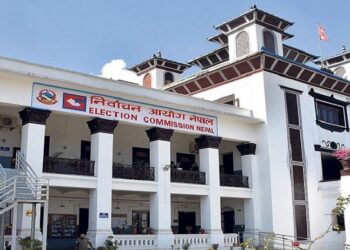The unexpected and rapid takeover by the Taliban over the Islamic Republic of Afghanistan shocked Afghan people who have been suffering for a long period.
Moreover, weak economic conditions, Insecurities, COVID-19, government mismanagement, corruption, revenue decline, and drought troubled Afghanistan further.
After the takeover, the economy will face several new challenges due to decreased foreign aid and assistance. The conditions of Afghanistan can improve with the formation of a new government, the response of the world actors, and the Taliban’s actions and responses.
Challenges:
Afghanistan is one of the weakest economies; moreover, this downfall will further lead to severe consequences:
Many of the government institutions have been left without a skilled and experienced workforce along with several experts.
Crisis Management without a stable government is another major challenge for the country since the Taliban has captured Kabul and is not willing to address the social-economic issues.
In Afghanistan, the refugee crisis is not a recent phenomenon, but the instability and rise of the Taliban created new hardships.
The construction of the Turkmenistan-Afghanistan-Pakistan-India gas pipeline (TAPI) project that was revived in 2018 is likely to be seized. The CASA-1000 railway line project is also likely to be affected.
Due to a lack of revenue, it will be challenging to deal with internal situations. What type of Islamic Banking approach the Taliban follows, is yet to be decided.
The dissolution of the Afghan National Security Forces left thousands of people unemployed and affected many of the lives of their heirs.
Another challenge will be the human rights issues for women. Seeing how the Taliban regulates working women and the economy is important.
The Taliban’s sudden takeover has already caused people to leave the country, and if it imposes restrictions in the urban areas where people have had a different livelihood for the last two decades, it will further cause disruption. Taliban’s actions can change the decisions of donor countries and agencies that could lead to worse conditions.
The US has frozen its $9.5bn in assets Da Afghanistan Bank (DAB) has in accounts with the Federal Reserve and other American financial institutions to keep the Taliban from accessing them. And the US had also stopped shipments of dollars to the country.
The IMF has also frozen the access of IMF resources to the Afghan government which is Special Drawing Rights (SDRs).
Other donors such as Germany, World Bank, and Asian Development Bank suspended all the disbursements.
Presently the assets held by Da Afghanistan Bank (DAB) is 784.6 billion afghanis ($10bn) for the period ending June 21, including 102.7 billion ($1.3bn) in gold and 28.7 billion ($366m) in foreign currency cash reserves.
Afghan Economy since Taliban Takeover:
Amid the worst drought situation in decades and deteriorating security conditions in Afghanistan, the economy struggled for years before the Taliban takeover. The Taliban’s sudden rise to power was the biggest setback thus far.
The Afghan economy is reliant on foreign donors that have a stake in the former government and they haven’t made their stand clear with the Taliban.
The aid had been decreasing for the last few years and rarely any organization wants to invest in an unstable country.
If Afghanistan doesn’t get aid timely, it will cause huge damage to the government’s financed institutions, essential services like education and health, which will further lead to the risk of hyperinflation. Food shortages are another major concern in Afghanistan due to the drought.
The current economic situation shows that over 47% of the total population live below the poverty line and over 34% of people with a job spend only $1.90/Day.
Most of the people rely on agriculture and the private sector is left behind due to insecurity, corruption, and political instability and according to the World Bank’s Doing Business Survey 2020, Afghanistan was ranked 173 among the list of 190 countries.
Regional Implications:
The withdrawal of the USA from Afghanistan has left a huge geopolitical vacuum. Due to the sudden occurrence of this event, now it’s uncertain who will be on the victorious side. The absence of the US will change the regional balance of power.
After the US many regional countries are looking to gain a strong foothold in the country like; India and China. Unlike its rivals, India has no direct borders with Kabul. India has been extending its reach to Afghanistan and Central Asia with the close cooperation of Iran and Afghanistan.
Though China has gained a foothold in Central Asia. China built a strategic partnership with Pakistan and extended it to Iran.
China is working with Russia under Shanghai Cooperation Organization (SCO) which will be joined by Iran. After joining many Central and South Asian countries, this block will work as a buffer to the US and its political influence in the region.
China’s interest lies in a stable Afghanistan, the withdrawal has given a huge opportunity to extend its influence which is furthermore a threat to Indian interests in the region.
China could provide funds under its debt trap policy to the Taliban government as its IMF and World Bank funds are frozen.
For India, the Taliban in Afghanistan can be seen as a regional political victory for Pakistan as Pakistan has been a haven for several Taliban leaders for the last two decades.
Though Pakistan helped in the formation of the Taliban in 1994, the Taliban cannot forget its cooperation with the US over the last two decades.
Business Implications:
The takeover has caused extensive damage to Afghanistan from the political, social, and economic perspectives. Due to the disruptions in trade, supply chain, transportation, imports & exports, and local businesses have difficulty operating.
The current situation presents regional countries with an opportunity for growth and dominance. The Taliban government has said that they will be more moderate than in the late 1990s.
Air travel is restricted to the military only and regional countries have closed their border to avoid illegal mass migration. A large number of foreign workers are leaving the country due to security concerns. Moreover, the local businesses fear being looted by fighters stationed nearby.
The construction of the Turkmenistan-Afghanistan-Pakistan-India gas pipeline (TAPI) project that was revived in 2018 is likely to be seized. The CASA-1000 railway line project is also likely to be affected.
On the other hand, the new relationship with Russia and China will bring opportunities and investment to the Afghan economy. Afghanistan’s natural resources can be a source of multiple investments but only if security and corruption issues are under control.
Analysis:
The decision to recognize or reject the Taliban government will be made by international organizations and countries.
The new government will be cornered if major powers and groups do not recognize the Taliban government. No business would invest in a country with an unstable political status and lots of security concerns.
Afghani entrepreneurs have a lot of opportunities, but starting a business in the country when people are leaving and shutting their businesses is a difficult decision.
The current situation presents regional countries with an opportunity for growth and dominance. The Taliban government has said that they will be more moderate than in the late 1990s.
This will be interesting to observe how they provide an environment of political and economic freedom for the organizations they accommodate.
The country will have to fight its own battles, so it must choose friends and enemies wisely. Taliban policy will be either a blessing for Afghans or a source of suffering for them.
(Akhilesh Dwivedi is pursuing a Ph.D. in Defense & Strategic Studies, and Aakriti Verma is pursuing a Master’s in International Relations)









Comment